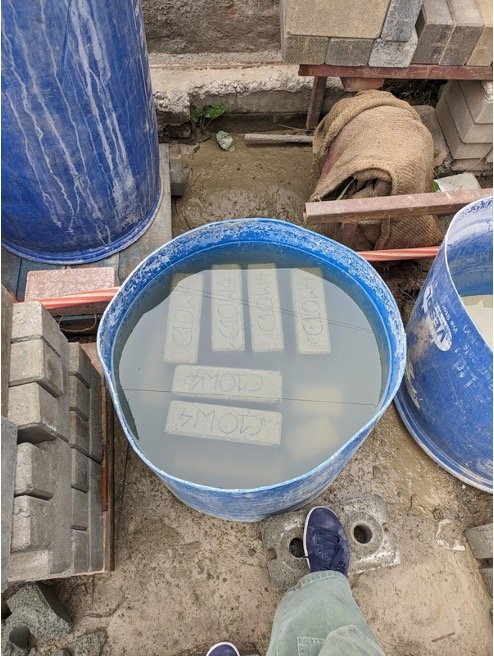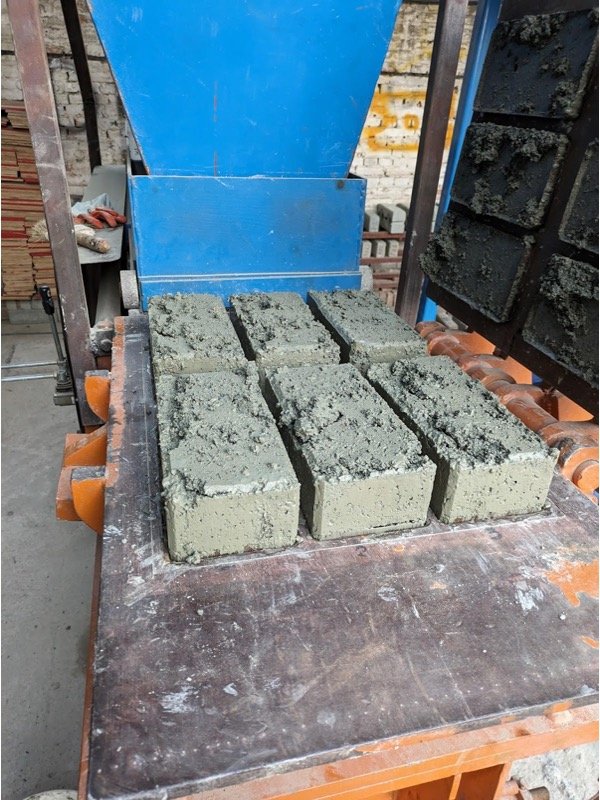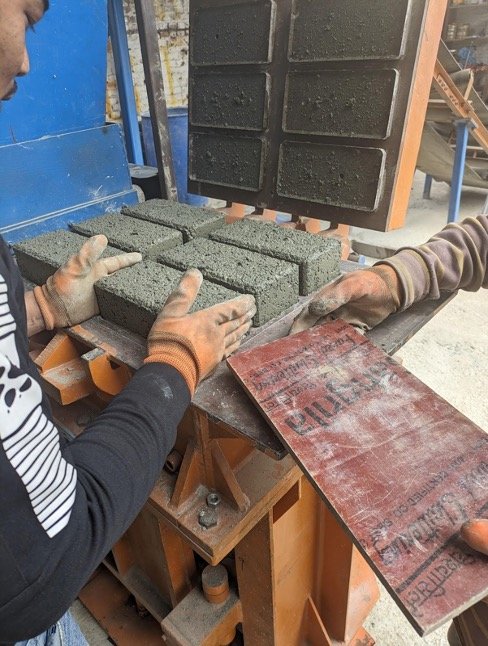Thesis Proposals
Do you want to write your thesis with EWB-SWE and contribute to real change? We welcome students every year to make studies related to our projects. On this page, we list current openings. At the moment we offer thesis proposals for our projects in Tanzania and Nepal.
Proposal for Master Thesis | Master Programme Infrastructure and Environmental Engineering 2025/26
Proposal 1 - Designing a Sustainable Agriculture and Irrigation System to Achieve Food Self-Sufficiency at Tumaini Open School
Background
Tumaini Open School in Tabora, Tanzania, currently provides meals for 65 people daily and expects this number to double in the coming year, (with an end goal of serving 450 people daily). With the increase in annual food costs, establishing a sustainable farming system could drastically reduce expenses and even create a surplus for market sales. However, an inadequate access to water and ineffective agricultural practices pose major challenges.
Research Aim
To develop a comprehensive plan for a sustainable agricultural system, including crop selection, irrigation design, and a business model that supports the school’s food self-sufficiency and financial independence.
Objectives
Rainwater harvesting at A SCHOOL BUIlding
Identify high-yield, climate-resilient crops suitable for Tabora’s soil and rainfall conditions, focusing on maize, beans, rice, and vegetables.
Evaluate modern agricultural techniques such as crop rotation, organic composting and agroforestry.
Design a water-efficient irrigation system using greywater and rainwater harvesting with drip irrigation to minimize waste. Approximate water demands.
Integrate organic waste (e.g. food scraps, manure) into a circular farming system through composting.
Assess land productivity and project yield potentials on the current 3 acres and future expansions. Can a surplus of crops be harvested?
Develop a business plan that includes input/output estimates, potential savings, revenue from marketable surplus, and payback period for infrastructure investments.
Methodology
Field assessments, interviews with school staff, local farmers, and other partners, cost-benefit analysis, yield modeling, and irrigation mapping. GIS tools may be used to plan optimal land use and irrigation layouts. Crop data will be aligned with FAO recommendations for smallholder farms in East Africa.
Expected Outcomes
A replicable, low-input farming system and irrigation plan tailored to Tumaini’s environment and needs. The business model will show how sustainable agriculture could fully or partially finance the school’s food demand and operational costs within 3–5 years. The proposal will also guide donor engagement for funding implementation.
Special prerequisites
The master thesis will require that you visit Tanzania for three months in order to conduct field work. Funding for your field studies can be applied for via the link below:
Specific timeframe
Starting from the beginning of 2026 until the end of the academic year.
Supervisors
From Engineers Without Borders Sweden: Ding He and/or Eduardo Ruiz
Contact person
Jamie Wilton, Project Manager, jamie.wilton@ewb-swe.org, +46 (0) 72 192 38 97
Proposal for Bachelor or Master Thesis
Proposal 2 – Investigating and Mitigating Shrinkage Crack Formation in Interlocking Brick Houses
About the position
The issue of cracks appearing in houses built with interlocking bricks is a significant concern, especially since it tends to be more pronounced compared to houses built with fired red bricks. Experts have identified these cracks as shrinkage related. To effectively address this problem, the project will focus on understanding the underlying causes, such as material properties and environmental factors, and developing strategies to eliminate or minimize crack formation. Also, the project may include further developing methods for effective monitoring and control of cracks to ensure long-term durability and quality of the structures. Additionally, it could propose ways of mitigating the risk for cracks developing.
Conditions
The scope can be adapted to be either a Master or a Bachelor thesis with one or two students.
Start: From autumn 2025.
Location: This work should preferably be done in Kathmandu at partner organisation Build up Nepal.
Deadline
We are reviewing applications continuously. Go to the application page below for more information.
Proposal for Bachelor or Master Thesis
Proposal 3 – Optimising the Mix of Interlocking Bricks
About the position
In 2024, an exam work by Linn Bogren revealed that increasing the water content in the brick mix could significantly enhance strength due to improved workability. A specific change from 6 % to 10 % water content demonstrated a doubling of strength. In response, Build up Nepal has decided to set a new target mix of 8 % water with 7 % cement, down from the previous 10 % cement. BUN has also begun retraining enterprises on this new method, which will be followed by continuous monitoring to ensure consistency. The key question is whether more water can be added to the mix while considering potential risks such as bricks breaking during production, alterations in surface texture and changes in other performance parameters. The compressive strength must be maintained at the target level with minimal variation. The ultimate objective is to reduce cement content further without compromising brick quality, primarily measured by compressive strength.
Conditions
The scope can be adapted to be either Bachelor or Master thesis with one or two students.
Start: From autumn 2025.
Location: The work can be done in Nepal or in Sweden with preference for work in Kathmandu at partner organisation Build up Nepal.
Deadline
We are reviewing applications continuously. Go to the application page below for more information.
Images from Nepal, photos by Build Up Nepal and Linn Bogren
Proposal for Master Thesis | Master Programme Infrastructure and Environmental Engineering 2025/26
Proposal 4 - Sustainable Greywater Treatment and Reuse Systems for Irrigation and Construction at Tumaini Open School
Background
Tumaini Open School discharges most greywater (from laundry, showers, dishwashing) untreated into the surrounding environment. With no formal sewer connection and limited water access, greywater reuse presents a valuable opportunity for non-potable uses, especially irrigation during dry seasons.
Research Aim
To evaluate and propose feasible, low-cost greywater treatment systems suitable for Tumaini’s needs, enabling safe reuse while minimizing environmental contamination.
Objectives
Identify the most practical greywater sources for treatment.
Design and compare two treatment solutions:
Filtration barrels with gravel, sand, and activated charcoal.
Elevated plant filtration beds mimicking constructed wetlands.
Evaluate environmental impacts, space requirements, and maintenance needs.
Assess reuse suitability based on water quality, (including microbial growth and pH testing).
Ensure adaptability to local construction materials and labour.
Methodology
On-site assessments, water sampling and quality modeling (hypothetical or with partner labs), literature reviews on decentralized treatment systems, and stakeholder consultations for acceptance and usability.
Expected Outcomes
A blueprint for implementing small-scale greywater treatment at the school, along with cost estimates, layout plans, and recommendations for safe reuse. The study will support long-term sustainability and water resilience while reducing pollution risks.
Special prerequisites
The master thesis will require that you visit Tanzania for three months in order to conduct field work. Funding for your field studies can be applied for via the link below:
Specific timeframe
Starting from the beginning of 2026 until the end of the academic year.
Supervisors
From Engineers Without Borders Sweden: Alicia Bizet, alicia.bizet@ewb-swe.org
Contact person
Jamie Wilton, Project Manager, jamie.wilton@ewb-swe.org, +46 (0) 72 192 38 97
Rainwater harvesting and water tank systems used for irrigation in Tanzania. Photos by: Emma Green Blomroos and Emil Tengmer.















